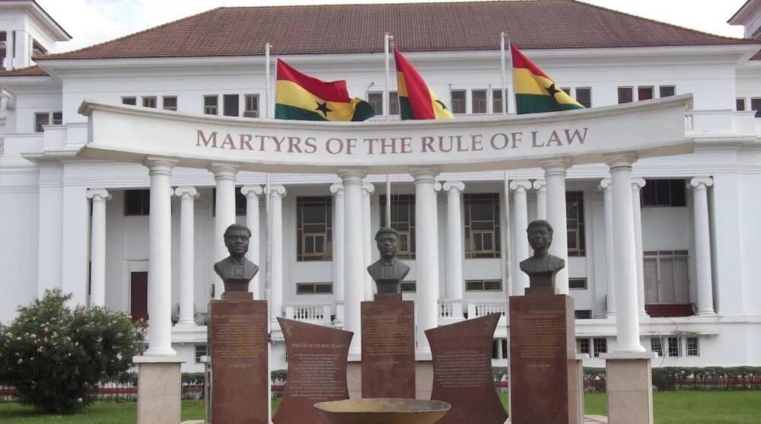The Supreme Court has provided a detailed explanation for its decision to uphold the suit brought by Majority Leader, Alexander Afenyo-Markin.
According to the apex court, a Member of Parliament (MP) is deemed to have vacated their seat if they change their political affiliation and continue to serve in Parliament under a new party identity.
This ruling supports the suit filed by the Majority Leader, clarifying that the relevant constitutional provisions apply only within the current term of Parliament.
The court specified that Articles 97(1)(g) and (h) of the Constitution do not extend to future parliamentary terms, such as when an MP runs for election under a different political party in subsequent elections.
The Supreme Court emphasised that an MP’s seat must be vacated if they switch parties while holding office within the same parliamentary term.
In other words, changing political affiliation during a parliamentary term while remaining in Parliament will lead to the loss of their seat.
The judgment also addressed the situation for independent MPs, making it clear that if an independent MP joins a political party while serving their current term, they must vacate their seat.
The ruling elaborated that the constitutional provisions should be viewed in the context of the existing term of Parliament.
They do not intend to regulate future candidacies or the electoral ambitions of MPs who may wish to contest under different political parties in the future.
“It follows from the above, therefore, that the only plausible conclusion which must necessarily flow from a holistic and contextual reading of Article 97(1)(g) and (h) is that an MP’s seat shall be vacated upon departure from the cohort of his elected party in Parliament to join another party in Parliament while seeking to remain in that Parliament as a member of the new party,” the court stated.
Additionally, the ruling clarified that the constitutional articles in question are not concerned with future elections.
They strictly pertain to the current period in which an MP holds their seat and make no provisions for future electoral scenarios.
In conclusion, the Supreme Court’s decision firmly defines the circumstances under which an MP must vacate their seat, focusing exclusively on changes in political affiliation within the same parliamentary term.
Latest Stories
-
Investors don’t find Ghana’s oil field or upstream sector attractive anymore – Nana Amoasi VII
4 hours -
We’ll not accept these unscrupulous acts – Kwesi Kwarteng on alleged distribution of expired rice to SHSs
4 hours -
Frimpong Manso wins NASCO Coach of the Month award for October
5 hours -
Kotoko’s Albert Amoah wins NASCO POTM for October
5 hours -
Paradox of Elitism: Why Ghana’s brightest minds fall short in leadership
5 hours -
EPA, UNESCO to advance plan to guard Lake Bosomtwe from further degradation
6 hours -
The Great Exodus: How Ghana’s best and brightest are trapped in a cycle of modern slavery
6 hours -
Ronica Sings returns with ‘Covenant Keeping God’
6 hours -
The Uneven Path Toward Cheaper Digital Remittances: A Focus on Ghana
6 hours -
Ogagus nominated A&R of the Year at the 2024 Beatz Awards
6 hours -
Is Ghana on the brink of becoming a failed state?
6 hours -
There is no order against The Speaker – Thaddeus Sory
6 hours -
I have observed his good and unifying conduct – Kufuor on Bawumia
6 hours -
Bawumia’s understanding of technology and global trends is what we need as a country – Kufuor
6 hours -
It is the way to go – ex-President Kufuor hails Bawumia railway development plan
6 hours

